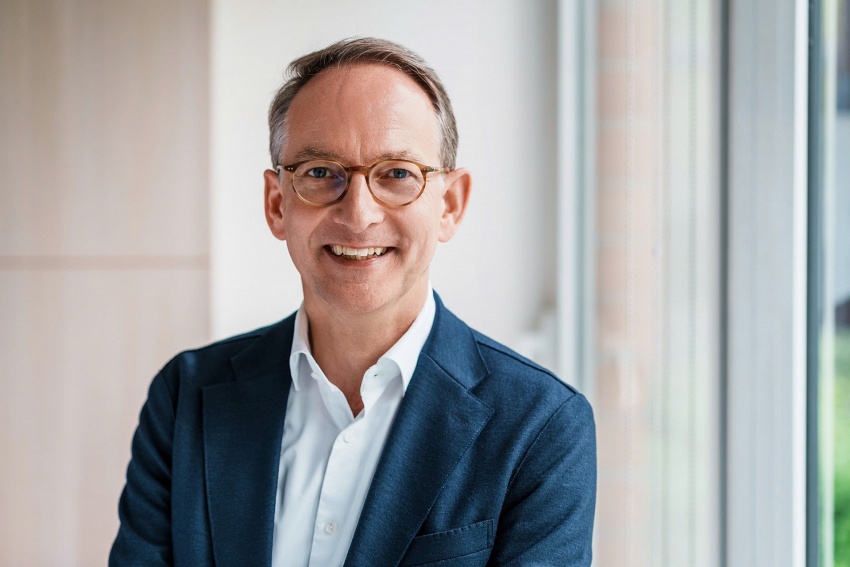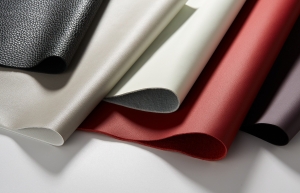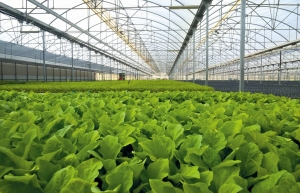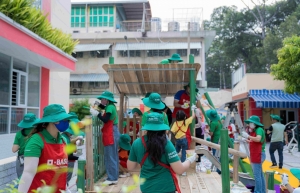BASF Performance Materials co-creates sustainable future with customers
The division, which brings together BASF's entire materials know-how regarding innovative and customised plastics, positions it at the forefront of the much-needed sustainability transformation in plastics.
 |
| Martin Jung, president of BASF Performance Materials |
According to Martin Jung, president of BASF Performance Materials, the company wants to enable its customers’ transformation by offering a portfolio with a lower carbon footprint and diverse circular solutions.
“We work through the entire lifecycle of plastics to make them more sustainable, from how to produce plastics more resource-efficiently and improve their use, to how to give them a new life. We call this transformation #ourplasticsjourney. With our roadmap, we are laying an important foundation to accelerate this transformation,” said Jung.
BASF has set clear targets to reduce carbon emissions by 25 per cent by 2030 compared to 2018 (scope 1 and 2) and by 15 per cent compared to 2022 (scope 3.1), with the goal of achieving carbon neutrality by 2050. The first and most imperative step of the company’s carbon management strategy is to increase the use of green electricity.
“In 2023, more than one-third of our performance materials sites worldwide were running on green electricity, and we are making relentless efforts to switch them all completely by 2025,” added Jung.
Green electricity also plays an essential role early in BASF's value chain, particularly in scope 3.1.
One of BASF's suppliers, 3B Fibreglass, supplies the company with glass fibres that are used as reinforcement for thermoplastic and thermoset polymers. By utilising solar panels to generate electricity, 3B Fibreglass significantly reduces its carbon emissions.
As a result, the glass fibre’s reduced product carbon footprint is transferred to BASF's products and ultimately to its customers. This showcases the potential of a circular economy when all stakeholders are committed to sustainability.
BASF is actively certifying its manufacturing sites globally with the International Sustainability and Carbon Certification (ISCC) PLUS and REDCert.
Most performance materials sites are certified by at least one scheme, and additional sites will be certified across all regions by the end of 2024.
These schemes certify the amount of renewable raw materials that is attributed to biomass balanced products. These renewable feedstocks replace a part of the fossil raw materials necessary for the production at the very beginning of the value chain. The process ensures identical product quality and properties. Thus, customers can use the materials as drop-in solutions. The same applies to chemically recycled feedstocks like pyrolysis oil from scrap tyres or mixed plastic waste.
Matthias Scheibitz, head of Sustainability at BASF Performance Materials, commented that today, the majority of its product portfolio is already available based on renewable feedstocks and with significantly lower or even net-zero product carbon footprints.
“We want to support customers as early as possible on the journey to meet their sustainability targets and offer diverse circularity options,” Scheibitz added.
To increase the use of circular feedstock in its product portfolio, BASF is looking into the most promising mass balance solutions, thereby meeting customer expectations from all industries.
On its sustainability journey, BASF Performance Materials is committed to reaching at least 20 per cent of circular economy sales by 2030 (via products that support the substitution of fossil with circular feedstock by at least 20 per cent).
A strong contributor to this target already is BASF’s biopolymer portfolio which is the optimal solution for certified compostable packaging and agricultural applications.
Biopolymers contribute to closing the biological loop by reducing food waste, increasing organic recycling of organic waste, returning nutrients to the soil, and avoiding the accumulation of microplastics in agricultural soil.
BASF Performance Materials views co-creation with customers and partners from all along its diverse value chains as the cornerstone of sustainability efforts within the plastics industry.
“For us, it is essential to offer our customers commercial and series-ready, sustainable solutions and inspire them on what is possible today,” added Jung.
Circularity needs to be deeply embedded in the product design phase. As an example, BASF Performance Materials has recently developed an innovative ‘design-for-recycling’ polyurethanes foam technology that enables simplified and scalable mechanical recycling.
The first steering wheel prototypes using this new technology were recently presented publicly in Europe and China.
The Siemens SIRIUS 3RV2 circuit breaker is the first electrical safety product to include components from biomass-balanced plastics where fossil feedstock at the beginning of the value chain is replaced by biomethane derived from renewable sources such as agricultural waste.
Similarly, BASF collaborated on Steelcase’s Flex Perch Stool using plastics derived from a chemical recycling process, preventing incineration or landfill.
In other cases, bio-based and recycled raw materials are used complementarily. Developed with Mercedes-Benz AG, the door handle and crash absorber of the Mercedes-Benz S-Class combine pyrolysis oil from scrap tyres and biomethane from organic waste to replace fossil raw materials used in manufacturing with plastics boasting virgin material properties.
For the packaging industry, BASF is also offering a way to increase the use of renewable feedstocks. Its portfolio of certified compostable biopolymers now includes a biomass-balance grade. Next to being organically recyclable, it also shows a 60 per cent lower product carbon footprint (PCF) than the respective standard grade.
Finally, a comprehensive portfolio of selected engineering plastics and polyurethanes with a significantly reduced PCF is available. Some of these low PCF products, such as isocyanates, reach a CO2 footprint close to zero, proving once again that a sustainable future with plastics is within reach.
 | BASF introduces future of sustainable synthetic leather BASF on July 17 launched Haptex 4.0, an innovative polyurethane solution for the production of synthetic leather that is 100 per cent recyclable. |
 | BASF VALERAS portfolio helps customers to achieve sustainability goals BASF on July 24 launched Tinuvin NOR211 AR to support film producers and converters globally in navigating the challenging landscape of plasticulture, the use of plastic materials in agricultural applications. |
 | BASF Vietnam and partners build playground for students with special needs BASF Vietnam and its co-sponsors, in collaboration with the social enterprise Think Playgrounds (TPG), have successfully implemented their eighth public playground project in Vietnam. |
What the stars mean:
★ Poor ★ ★ Promising ★★★ Good ★★★★ Very good ★★★★★ Exceptional
 Tag:
Tag:
Related Contents
Latest News
More News
- BASF Vietnam and partners build playground for students with special needs (August 17, 2024 | 12:24)
- BASF VALERAS portfolio helps customers to achieve sustainability goals (July 25, 2024 | 19:05)
- BASF celebrates inauguration of TPU plant at the Zhanjiang Verbund site (January 23, 2024 | 10:08)
- BASF launches first biomass balance plastic additives (October 03, 2023 | 15:13)
- BASF Vietnam rebuilds seventh school (September 29, 2023 | 17:59)
- BASF Vietnam targets sustainability of its value chain (September 16, 2023 | 11:05)
- BASF contributes to a greener and more prosperous future (September 15, 2023 | 09:43)
- BASF Vietnam and Think Playgrounds launch seventh public playground in Ho Chi Minh City (June 06, 2023 | 12:35)
- BASF and partners build seventh school in Vietnam (April 20, 2023 | 14:20)
- BASF Virtual Lab helps Vietnamese students learn about nature (December 23, 2022 | 15:33)



















 Mobile Version
Mobile Version